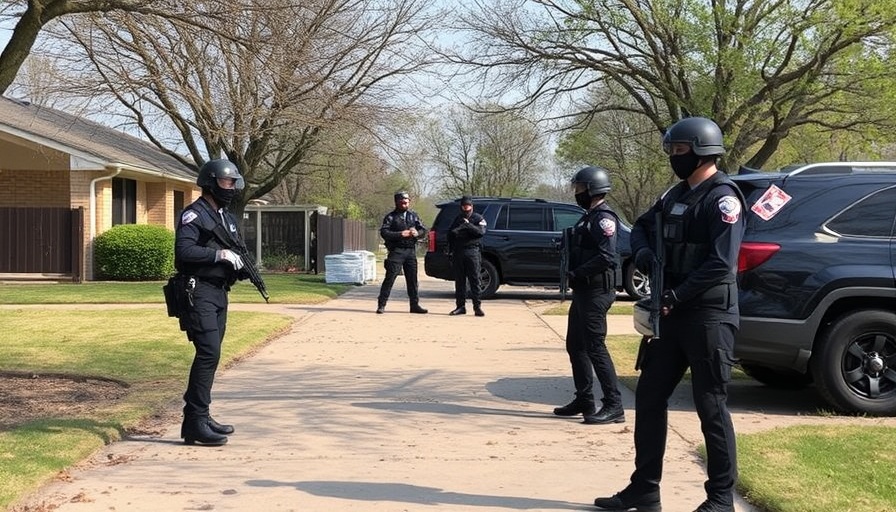
A Groundbreaking Ruling: The City of McKinney's SWAT Standoff Liability
The ongoing battle between a former McKinney resident, Vicki Baker, and the City of McKinney reached a significant turning point recently when a federal judge mandated the city to pay nearly $60,000 for property damages resulting from a SWAT standoff that occurred in July 2020. This ruling not only highlights the struggles of one woman's fight for justice but also raises questions about governmental responsibilities toward private property during police operations.
The Incident: Just Another Day Turned Upside Down
In the chaotic days of July 2020, Baker found herself in a situation no homeowner wishes to experience. A SWAT team had descended on her property due to a former handyman who had barricaded himself inside. Baker's plea was simple: “Please don't destroy my house,” yet the aftermath left her with significant financial burdens. As she navigated through cancer treatment and plans to relocate to Montana, the emotional and financial toll only intensified.
Years of Legal Struggle: The Fight for Justice
The timeline of Baker’s legal journey is nearly as tumultuous as the original incident itself. Engaging the Institute for Justice, Baker sought to establish a precedent on the constitutional obligations of the government concerning private property. Jeffrey Redfern, her attorney, stated, “We’re trying to establish as a matter of U.S. constitutional law that when the government intentionally destroys private property... they have to compensate the people whose property they sacrifice.” This landmark case has pushed through multiple legal hurdles, highlighting the complexities of property rights and government accountability.
The Significance of the Ruling: A Win for Property Rights?
For homeowners in the Dallas Fort Worth area, Baker's case signifies more than just a personal victory; it poses critical implications for property rights during police operations. The judge's verdict of $59,656.69 in damages represents potential consequences for how governmental bodies handle private property in high-stress situations. With rising tensions surrounding police activity and community responses, this ruling could pave the way for similar cases, allowing properties damaged in police encounters to be compensated fairly.
Community Response: A Larger Conversation
Baker's story has sparked deeper discussion within the DFW community about the responsibilities of law enforcement and local governments. It challenges citizens to consider how often personal property may be put at risk during police operations and what protections should be enacted to safeguard homeowners during such incidents. The TRACER organization, alongside community members, are discussing possible changes in local laws to ensure that property owners are not left to shoulder the costs resulting from governmental actions.
Conclusion: The Impact of Baker's Case on Future Policies
The ruling in Baker's case can serve as a wake-up call for governmental transparency and responsibility in operational tactics. The legal precedents set will undoubtedly shape opinions and encourage potential legislative discussions about homeowners' rights in the context of police actions. As the Dallas Fort Worth community reflects on this pivotal moment, it is critical for homeowners to stay informed about their rights and engage in local discussions about protection measures. We encourage readers to voice their thoughts on this case, and consider advocating for policies that ensure government accountability in the future.
 Add Row
Add Row  Add
Add 




Write A Comment